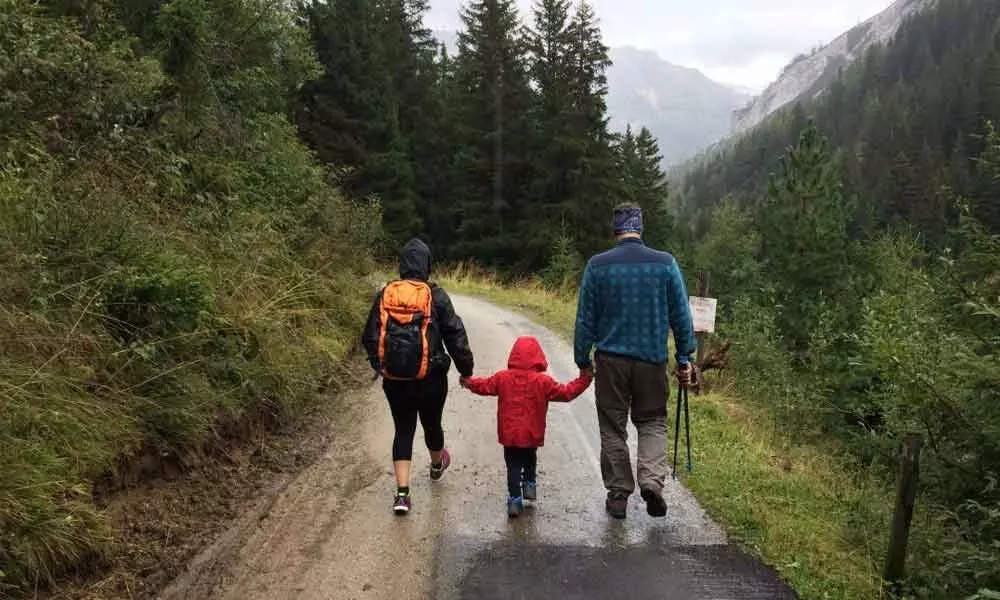Call for stronger nature conservation post-pandemic

The novel Coronavirus has altered the lives of billions of humans in unprecedented ways, but what shone through is the resilience of nature.
New Delhi: The novel Coronavirus has altered the lives of billions of humans in unprecedented ways, but what shone through is the resilience of nature. Air pollution levels down, animal communities freer to roam the planet, and clearer streams of water -- restricted human activity has achieved what only years of organised environmental effort could have corrected.
Human activity has altered virtually every corner of our planet, from land to ocean. And as we continue to relentlessly encroach on nature and degrade ecosystems, we endanger human health. In fact, seventy-five per cent of all emerging infectious diseases are zoonotic, that is viruses originating from the transfer from animals, whether domesticated or wild, to humans, Inger Andersen, Executive Director of the UN Environment Programme has said in a statement.
Environmentalists call for stronger nature conservation post-COVID
Wildlife biologist Latika Nath says that humans have for centuries been taking over habitats that were homes for fauna both on the land and in the oceans.
She stated: "We encroach habitat, destroy natural vegetation, block water channels and fill water bodies. And we tap ground water and over use it, fill concrete on land and cause its natural water absorption capacity to reduce, we cut through forest swathes by building roads, power lines and railways, we build dams, and we pollute the darkness by creating cities which waste and emit more light than we need. Our plastic fills our world, and even enters organisms, the noxious gases from using petro-chemicals for transport and energy and manufacturing in so many industries pollutes air, water and land."
"So yes, humans are at war with nature - they want to subdue, use and discard instead of being clever enough to use resources sustainably," she told IANSlife.
It, then, becomes clear that human life and the environment are connected in intricate ways. While the pandemic has led to severe economic and humantarian costs, the positive enviromental spill-out of the changes in human behaviour, must be sustained now.
According to environmental activist Arun Krisnamurthy, known for restoring scores of lakes across India, the biggest environmental gain out of this lockdown has to be that of air quality improving in most parts of India. "What seemed like a permanent layer of gloom and dust has finally lifted," he told IANSlife.
Adding, well-known wildlife photographer and explorer Kalyan Varma told IANSlife: "The lockdown has really shown us a glimpse of the world where we can have less impact. We have the cleanest air in a decade and wildlife in many places has come out to urban areas. Proves that if we reduce our footprint, the environment can bounce back very quickly."
"We must use the opportunity to have sustainable ways of industry as things slowly start to open up. Covid-19 has reset our fast paced life and we must use this learning to have stronger environment protection and regulations to have a future where we can conserve," the naturalist who's been part of India crew for many Sony BBC Earth wildlife shows, said.
As per Krisnamurthy, to sustain this most of us should reconsider usage of crude fuelled vehicles and look at healthier options. "We should push for policy changes for cleaner energy and move away from coal. We should take a firm stand against the burning of non degradable waste and more. The lockdown has most definitely given nature more space and time with limited human intervention. Having said that, our generation of non-degradable waste at household level or the generation of sewage from households has not reduced. This continues to pollute the planet.
"The industrial contamination of earth has reduced not the domestic. The air quality and water quality at certain areas has improved and I sincerely hope we all will work towards maintaining and improving the same. The environmental cost is being felt with regards to the medical waste that is being generated, which we have to find more sustainable solutions for."
With climate change, global warming, and feeling the effects of plastic pollution, the Covid lockdown has given us a time to introspect and think. We need to change our habits and learn that we are as mortal as the rest of nature's organisms. We need to change our lifestyles and learn to live more in sync and harmony with the Earth. Our children need to inherit an earth that is cleaner, greener and safer for them, concludes Nath.














